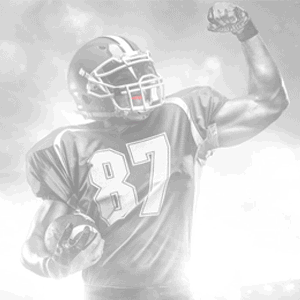Are The Olympic Games Bad For Professional Athletes And Their Teams?

Now that another Olympic Games have come and past, it’s time to rehash that age-old debate that pops up this time every four years: should the Olympics allow professional athletes to compete or should the games be limited to amateurs?
The question is particularly relevant to the Winter Olympics, as Olympic hockey always seems to invoke the 1980 USA Hockey team and how a group of college kids were able to accomplish great heights and inspire a nation. It’s hard not to be nostalgic for arguably the greatest sports moment in United States history and — with Olympic hockey almost exclusively featuring players who get paid by NHL franchises for a living — it’s even harder not to romanticize a group of amateurs taking down a world power.
While the argument to use amateur players is rooted in the purity that the Olympics (supposedly) embody, the conversation this year has been sparked by another factor altogether: injuries.
Injuries are simply a part of sports and they’re going to happen; but with the NHL suspending the regular season in order to accommodate the Olympics, injuries could have devastating consequences. Teams in the thick of the playoff hunt are forced to send their best players and leaders to Sochi to compete for their respective countries and now some of those same teams are experiencing major setbacks to their championship hopes.
This year’s Olympic hockey tournament was marred by injuries, most notably to three key players on teams with playoff-aspirations: Detroit Red Wings’ forward and Swedish team captain Henrik Zetterburg, New York Islanders’ center John Tavares and Montreal Canadians’ goaltender Carey Price.
Zetterberg is out for the season and his career may be in jeopardy due to impending back surgery. To make matters worse, the Red Wings are in danger of breaking a 22-season playoff streak that is currently the fifth longest all time in the NHL and the only active streak over nine seasons. Price is skating again and finally rejoined his team, but during his over two week absence the Canadians only collected three wins and fell from a guaranteed playoff spot to only hold a wild card playoff spot. Tavares, who brought home a gold medal as part of Team Canada, thought he was going to play again this season, but his year was cut short due to a partially torn MCL. Without Tavares, the Islanders have only posted four wins in the last month.
Tavares’ general manager Garth Snow, a former NHL goalie, ripped the use of professionals in the Olympics after his star player’s injury, and it’s easy to see his side of the argument. After all, professional sports are money-making businesses and star players are prime investments; which, aside from injuries, is the elephant-in-the-room when it comes to leagues like the NHL lending out its players to the Olympics. Is it fair to the Red Wings that they had to lose Zetterburg for their playoff run, in a game he played with someone else? Is it fair to Islander fans that they don’t get to watch their team’s best player for the remainder of the season?
Well, what about the athletes themselves? Would it be fair to tell them they’re bound to their professional contracts and aren’t allowed to represent their country in one of the most meaningful ways? Here’s how Tavares reacted to the quote from his GM:
“For me as a player, I think it’s important for us to play. I think you saw how much we love representing our countries, especially at that level. But put yourself in his shoes and you can understand why teams are concerned about their players and injuries. Certainly I know he cares a lot about the Islanders and the organization and so do I. There’s always that concern with this game, there’s always that risk when you step on the ice of possible injuries. It’s obviously a tough situation but I certainly love playing for my country, and if I got the call again, I would.”
Judging by the end of that statement, it seems like winning gold for Canada is equally, if not more, important to Tavares as winning a Stanley Cup for his NHL franchise. That’s a pretty telling sign for how professional athletes feel about the Olympics, but, after all, players are playing for their home countries and their national identities.
So, should the Olympics revert back to the “glory days” of amateur-only competition? Well, there’s one other factor to take into consideration: amateur-ism in sports is all but dead.
Nearly every top Olympian is receiving some form of payment from someone — typically an endorsement or sponsorship — for competing in their sport of choice, thus disqualifying their amateur status. And rightfully so; someone with superior talent and ability deserves to make a living off that talent.
If the true spirit of the Olympic competition is to determine the world’s best, shouldn’t the world’s best athletes be involved, regardless of their earning potential? What would the NBA look like today if the Dream Team never happened in 1996? Would you be as interested in watching Olympic basketball without players like LeBron James or snowboarding without stars like Shaun White?
What do you think? Should the Olympics continue to allow professional athletes to compete or should the games be exclusively for amateurs?
Whether professional or amateur, all athletes get the protection and comfort they need with Gladiator Custom Mouthguards, the industry-leader in custom mouthguards.






